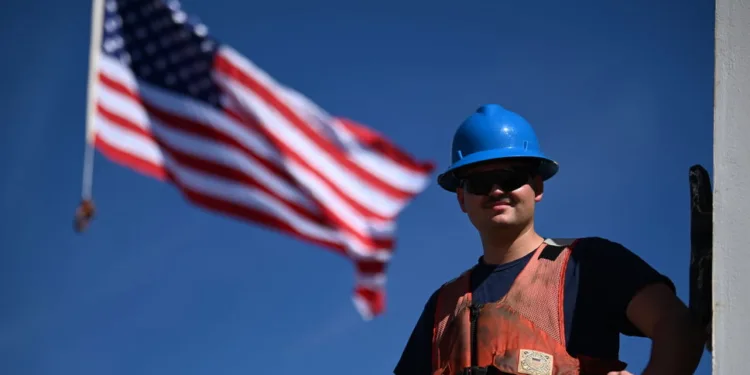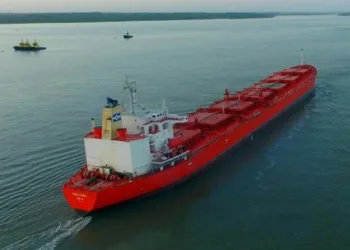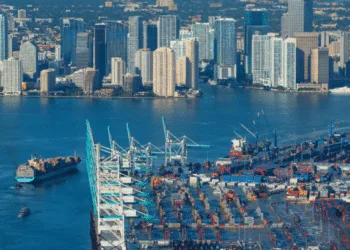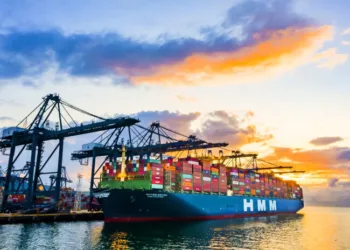WASHINGTON — Legislation targeting China’s shipyard industry would also open U.S. domestic shipping trades to foreign operators, a practice currently barred by federal law.
Introduced by U.S. Reps. Ed Case, D-Hawaii, and James Moylan, R-Guam, the Merchant Marine Allies Partnership Act addresses what the lawmakers say are loopholes in the law that incentivize U.S. domestic trade ships to be built and repaired in the People’s Republic of China (PRC).
They contend that the law, known as the Jones Act, creates domestic shipping monopolies that artificially inflate the cost of goods imported to Hawaii and Guam.
“Under long-standing loopholes in maritime law, Jones Act shippers can and do outsource major vessel parts fabrications and modifications to foreign shipyards, primarily those in the PRC,” Case said in introducing the legislation.
“These modifications are not minor, and often include full engine replacements, liquefied natural gas conversions and other critical overhauls. Through further loopholes, these modifications largely avoid the 50% import duty imposed on foreign ship repair.”
Case cited as examples retrofits of Jones Act-compliant container ships operated by Honolulu-based Matson Inc. (NYSE: MATX) recently converted to liquified natural gas at Cosco’s Nantong facility in China, “which has known ties to the Chinese government and military-industrial complex,” he said.
“By closing loopholes that benefit the People’s Republic of China and instead partnering with trusted allies like Japan and South Korea, we can grow our shipbuilding capacity, support good-paying jobs, and deliver real relief for families and businesses,” Moylan said.
According to the text of the bill, the legislation would create a “Foreign Ally Shipping Registry,” composed of countries determined to be a U.S. ally.
U.S. companies would be exempt from the 50% tax on major vessel modifications if the work is performed in shipyards located in allied nations included in the registry.
Companies from those nations would also be eligible to operate foreign-built, foreign-crewed vessels in coastwise trade “under appropriate regulatory conditions, in recognition of the global nature of modern shipping,” Case said.
The Secretary of Transportation would be able to authorize, for renewable five-year periods, “a qualified vessel to transport merchandise by water, or by land and water, between points in the United States to which the coastwise laws apply, either directly or via a foreign port,” according to the bill’s text.
Case insisted, however, that the legislation does not repeal or abandon the Jones Act, but that it “restores the law to its intended purpose – to serve as a foundation for national resilience, industrial strength and strategic security, rather than being hijacked by the hypocritical umbrella of national defense at the expense of increased costs of consumer goods across the country,” he said in introducing the bill.
“It recognizes that modern maritime commerce is global, but that global alignment must be rooted in trust, shared values and common defense.”
Related articles:
- Bill aims to close Jones Act ‘loopholes’
- How a controversial shipping law is swaying the price of gas
- Trump vows not to act on Jones Act
Click for more FreightWaves articles by John Gallagher.
The post Bill would open US shipping to foreign allies appeared first on FreightWaves.






















